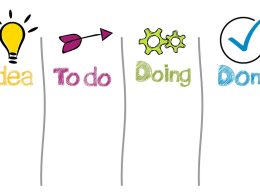1. Know Yourself
A good leader must know themselves and their strengths and weaknesses. This can help them understand what areas they excel in and where they need improvement. Knowing oneself is essential because it helps the leader identify their personal leadership style. Everyone has a unique leadership style, and understanding yours can help identify areas to improve on.
2. Lead by Example
In business management, leading by example is one of the most critical pillars of leadership. Leading by example involves acting in a way that others can emulate and follow as an example. Employees need to see that their leader demonstrates the behavior that is expected of them. By leading by example, a leader demonstrates the standards they expect from their employees.
3. Communication
Communication is an invaluable tool in leadership. A leader must be able to communicate well with their team, whether it’s giving clear instructions, listening to feedback or making announcements. An effective leader should be able to provide feedback that is constructive and actionable.
4. Empathy
Empathy allows a leader to connect with employees on a personal level. Leaders who show empathy can better understand the needs and challenges of their team members. It’s an essential tool to boost collaboration, engagement and create an inclusive working environment, generating trust and respect among employees.
5. Be a Visionary
A leader needs to have a clear vision for the company’s future, which can inspire and motivate employees and the organization to work towards it. They must be able to effectively communicate their vision, present it in an optimistic and achievable way. It should also be a realistic and well-informed vision, one that addresses the needs of the market, the organization goals and objectives, and the eventual legacies that the company seeks to leave behind.
6. Continuous Learning
Leadership isn’t a one-time skill; it’s a continual process of growth and development. A great leader should continually learn and adapt to changing situations and the evolving market. A deep understanding of the business and its challenges will inform sound decisions that align with the corporate goals. A leader who continually learns and evolves can help position the business for success.
Conclusion
Mastering the art of leadership is a lifelong journey that requires determination, commitment, and continuous learning. A business manager who possesses the skillset to lead well can build a successful organization, motivate employees, and contribute to the organization’s long-term sustainability. The seven elements outlined above offer an excellent foundation to build effective leadership skills.










